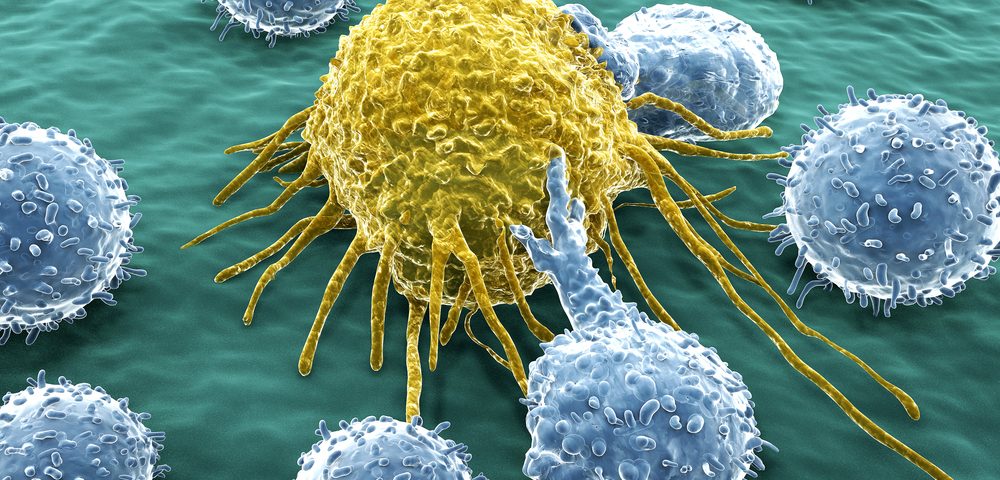A new version of a known molecule is highly effective in stimulating pro-inflammatory and anti-tumor responses in humans, a recent mouse study revealed.
These findings, along with the technology used in the study, might help develop more effective treatments to stop cancer from spreading.
The study, “Dual Modifications of a-Galactosylceramide Synergize to Promote Activation of Human Invariant Natural Killer T Cells and Stimulate Anti-tumor Immunity,” was published in the journal Cell Chemical Biology.
Natural killer T-cells (NKT), a subtype of T-cells, survey the body for stressed and abnormal cells, playing important regulatory roles in many immune responses, including anti-tumor responses.
NKT cells can attack cancer cells either directly or through the recruitment and activation of other immune cells. The immune responses of NKT cells are activated through the recognition of foreign fat molecules.
NKT cells are known for their rapid production of large amounts of cytokines — signaling molecules that are essential for communication between cells of the immune system. They can produce regulatory, pro-inflammatory, and anti-inflammatory cytokines.
Previous studies have shown that the foreign fat molecule alpha-galactosylceramide (α-GalCer) is a potent stimulator of NKT cells with anti-cancer responses, making it a potential cell-targeted immunotherapy to treat cancer.
Numerous studies have found that synthetic α-GalCer, or variants of the molecule, induce anti-cancer immune responses via NKT cells in mouse models. However, to date, those compounds have shown limited effects in human cancer patients.
Researchers believe the disappointing results in humans are because current compounds stimulate NKT cells to produce different types of cytokines with conflicting effects — such as pro- and anti-inflammatory cytokines — leading to ineffective and unpredictable immune responses.
An international team of researchers have now developed an improved α-GalCer compound, called AH10-7, that induces the production of a specific set of pro-inflammatory cytokines — known as Th1 cytokines — which stimulate anti-tumor immune responses.
To achieve this, researchers performed two chemical alterations in an α-GalCer molecule, which increased the stability of the molecule — improving its recognition by NKT cells — and induced a specific anti-tumor response.
“One of the goals in this field has been to identify compounds that elicit a more biased or selective response from iNKT cells, and we were able to incorporate features in AH10-7 that did that,” Amy Howell, PhD, the study’s lead researcher and a chemistry professor at the University of Connecticut, said in a press release.
Researchers tested the effectiveness of AH10-7 in NKT cell lines and in mice with melanoma, including a partially “humanized” mouse model, which had been genetically modified to replicate the response of human NKT cells.
AH10-7 was found to effectively suppress melanoma cell growth and spread, both in normal and “humanized” mice, suggesting that “the pairing of structural modifications used in the design of this compound may be a promising path for development of human therapeutics,” the team wrote.
Researchers used advanced structural and 3-D computer modeling analysis to better understand the effects, at the molecular level, of the two chemical modifications present in AH10-7. This approach has the potential to help the development of new and even more effective NKT cell-activator compounds.
“We are providing protocols so that other scientists can rationally design related molecules that elicit desired responses from iNKT cells,” said José Gascón, PhD, a specialist in quantum and molecular mechanics at UConn and one of the study’s authors.


